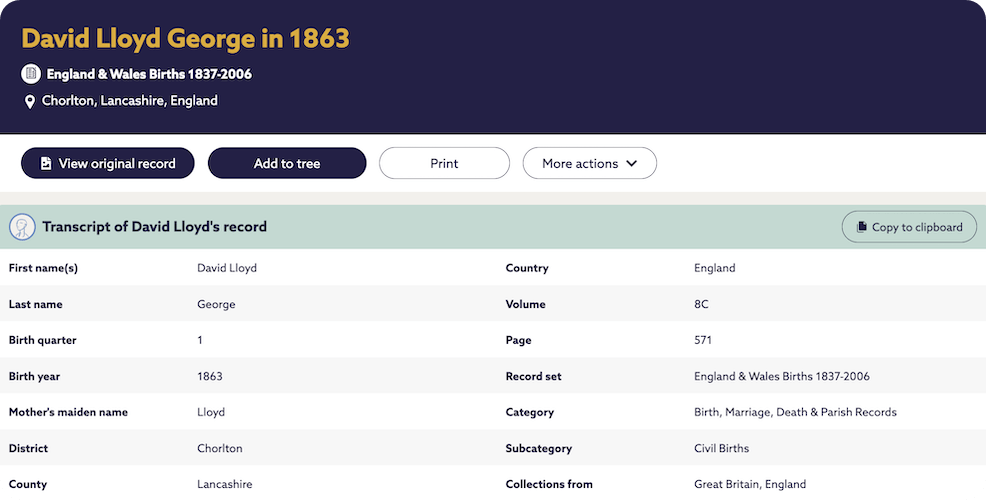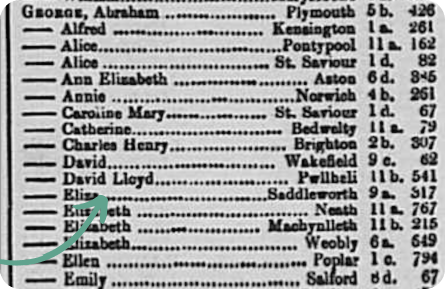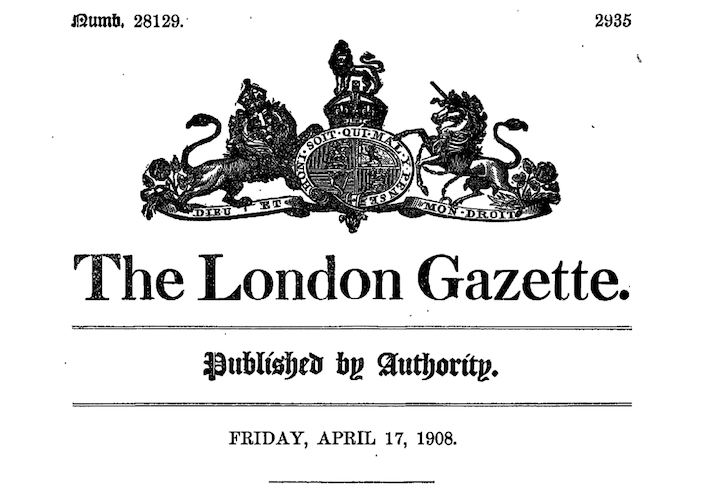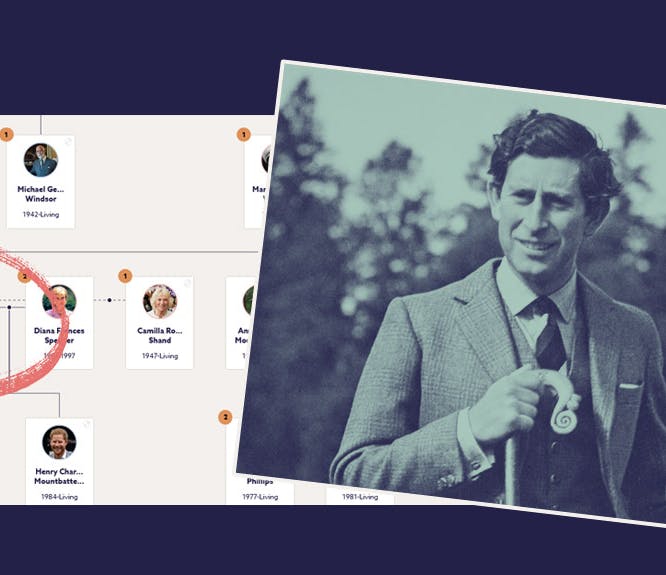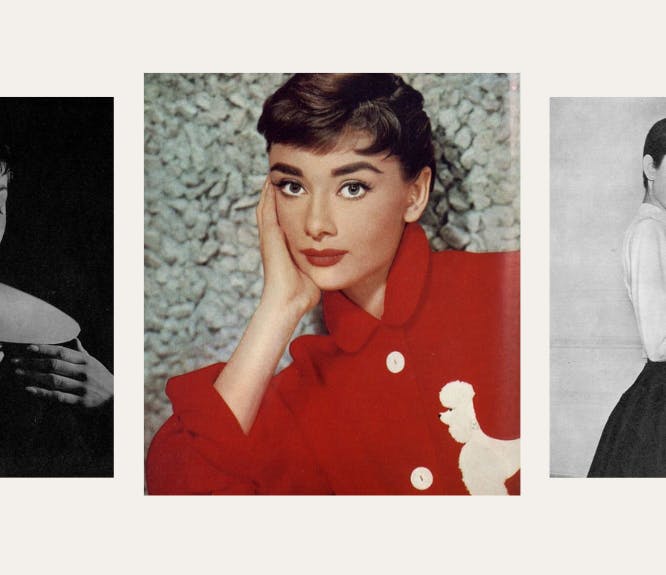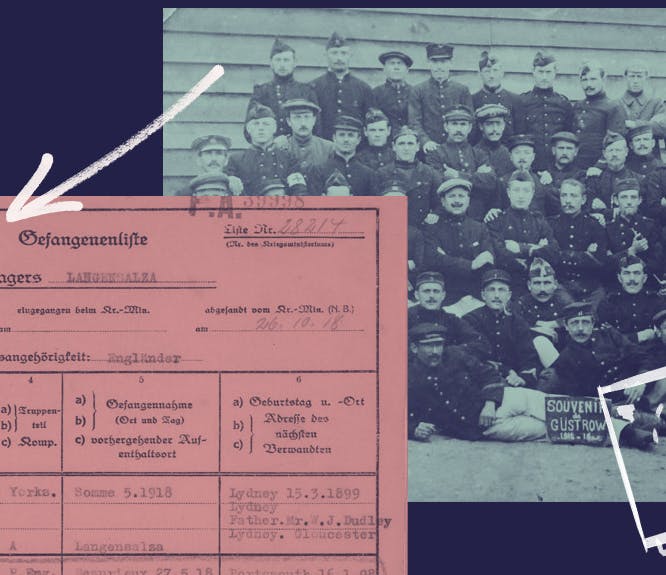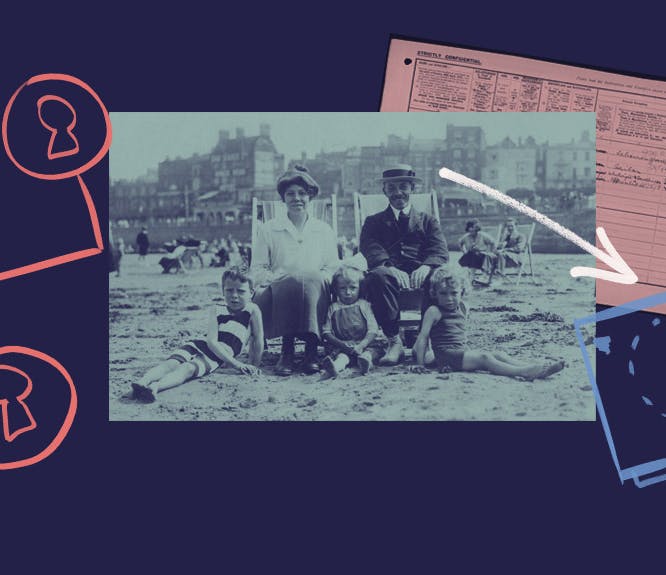Here's how to research the double-barrelled surnames in your family tree
5-6 minute read
By Liam Boyle | February 13, 2024
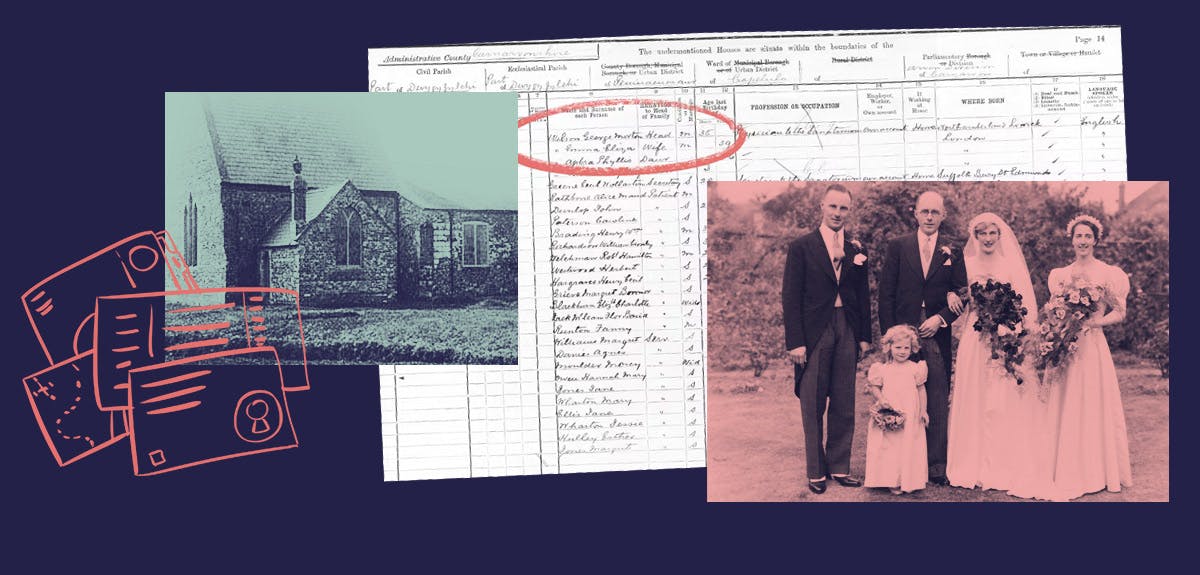
Do you (or your ancestor) have a double-barrelled surname? Read our expert top tips for making the most of your search results and more.
Any experienced family historian knows how helpful an obscure name can be. We'll get only a few records when searching for rare surnames like Farah or Clutterbuck, whereas a search for John Smith will return hundreds of thousands of records (around 450,000, to be more exact).
Find your ancestor
Middle names can help to narrow down broad search results - for example, there are only seven John Smiths in our collection with the middle name Pepper.
But what about double-barrelled surnames?
The trickiness of double-barrelled surnames
Once reserved for the upper classes and considered a bit of a status symbol, double-barrelled names have become more and more common over the last hundred years and much like an obscure name, can make your ancestor jump out on the page. Whilst helpful, they can also be a bit daunting when it comes to carrying out your search. You never know how they gave their name or indeed how an enumerator will have recorded it.
Take former Prime Minister David Lloyd-George for example. Born in Lancashire in 1863 to Welsh parents William George and Elizabeth Lloyd, David would go on to grow up in Wales where he became an MP years later. If you have Welsh ancestry, you’ll know how tricky common surnames like Lloyd can be. The same can be said of Georges in English records.
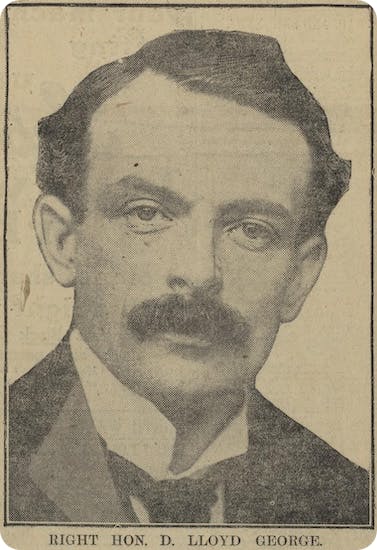
David Lloyd George, 1908.
However, instead of David George or David Lloyd, William and Elizabeth decided to combine their surnames, making their son's name David Lloyd George.
At first glance, this seems like a godsend for family historians. But you may still need to get creative in order to locate his records. Luckily, Findmypast has plenty of search options available to make this a breeze.
Think outside of the box
With a new ancestor, the logical place to start would be their birth record. If you knew David had a double-barrelled surname, it would be natural to include this in your search. But you may be surprised to see he doesn’t appear in the search results – although there are three David Lloyd Georges, none are the man that we are looking for.
Now this is where you'll need to start thinking more creatively. Although we know him as David Lloyd George, how would the registration office have interpreted this when the indexes were made?
If at first you don’t succeed; try including part of the double-barrelled surname as a middle name. Adjusting your search and using Lloyd as a middle name rather than part of the surname will present 22 results. At the top of the list is a David Lloyd George, born 1863 in Chorlton. The original image shows his first name as David Lloyd, last name George.
Now you have his birth record, you may think that this approach is the way to move forward. Indeed, you would be correct when it comes to his marriage record. When Lloyd George married Margaret Owen in 1888, he was again listed with the first name David Lloyd and the last name George.
But as all genealogists know, family history is rarely straightforward. After all, it would be far too easy if every record he appeared on followed this pattern.
The first mention of him with the double barrelled name that we're all familiar with comes from the London Gazette in 1905, when the Right Honourable David Lloyd-George was sworn President of the Board of Trade.
The hyphen is important here, especially when it comes to transcribing the records as it indicates that Lloyd is indeed part of the surname, whereas without it, it could be perceived as a middle name.
To hyphen or not to hyphen...
This is where the Findmypast's searching technology can help. Handily, whether to enter the surname as Lloyd George or Lloyd-George, the above record will still appear.
The search results are sorted in order of relevance, so if you enter the surname without the hyphen, those results will appear at the top of the list, and vice versa. If in doubt, you can always use a wildcard search, entering an asterisk (*) in place of the hyphen to account for both options.
You could alternatively include name variants of the surname, although this will present you with many more irrelevant results than the former option.
If we fast forward to 1920, the now Prime Minister David Lloyd George appears on a passenger list, travelling from London to Marseille with his daughter Megan aboard the S.S. Naldera. This time, we see a hyphen in his surname.
As the results are sorted by relevance, this will either appear on page one or two in a search of all records. Depending on how common a surname you are searching or how many records there are for your chosen ancestor, you may wish to carry out separate searches with and without the hyphen.
By this point, we have seen him recorded with the first name David Lloyd, the surname Lloyd George and also Lloyd-George. You’ll be thinking there are no more possibilities - but we need to consider official documents like civil birth, marriage and death records and how they deal with middle names.
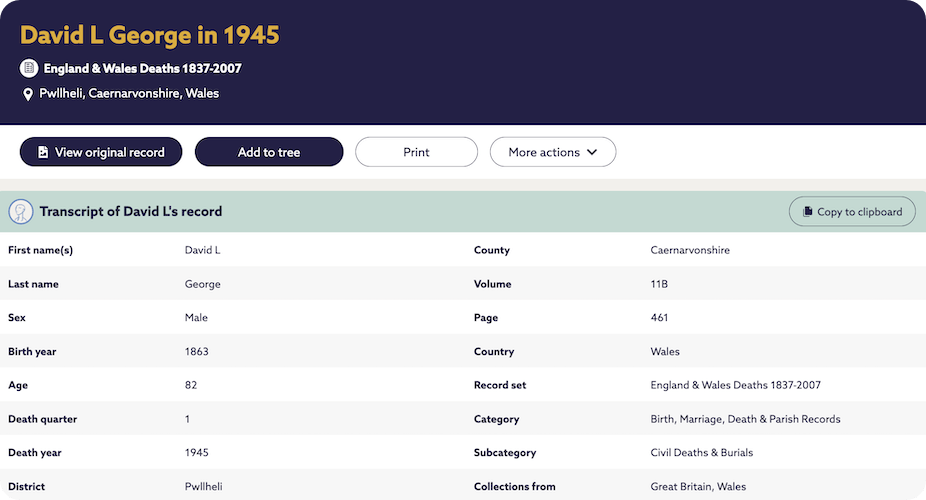
David Lloyd George's death record. View in full.
You won’t always see full middle names transcribed from these records. This means that if Lloyd has been recorded as the middle name, you also need to look out for David L, as is the case with his civil death record from 1945.
Searching surnames with Findmypast
Your ancestors' surnames can be a tricky topic to navigate - after all, we don't all have rare surnames that make narrowing down search results straightforward. Nevertheless, our last names form a crucial part of genealogical research.
From occupational names to location-specific monikers, we can learn a lot from the different types of British surnames. Why not visit our surname page, to discover the meaning behind your surname?
For further help with searching Findmypast's ever-growing record collection, head to our Help Hub. With millions of records at your fingertips, there is no limit to the fascinating discoveries that can be made.
